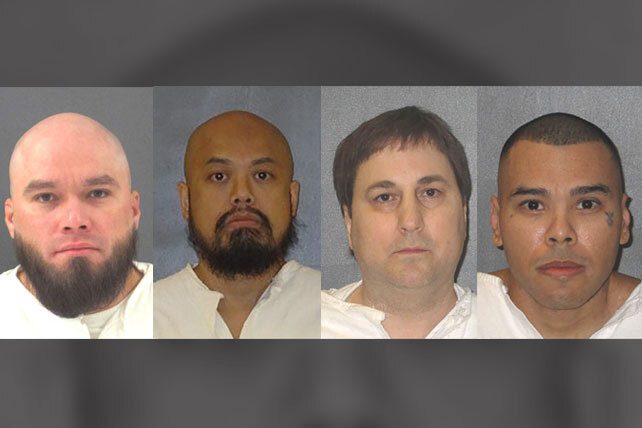The Supreme Court has dealt with the presence of spiritual advisers in the death chamber in recent years but has not made a definitive ruling. The inmates are citing the Constitution’s First Amendment as well as a 2000 federal law that protects a prisoner’s religious rights.
The high court’s review comes after the Texas prison system in April reversed a two-year ban on spiritual advisers in the death chamber but limited what they can do. Texas instituted the ban after the Supreme Court in 2019 halted the execution of Patrick Murphy, who had argued his religious freedom was being violated because his Buddhist spiritual adviser wasn’t allowed to accompany him. Murphy remains on death row.
The ruling in Murphy’s case came after the court was criticized for declining to halt the execution of Alabama inmate Domineque Ray over his request to have his Islamic spiritual adviser in the death chamber.
In a statement filed in federal court Monday in Barbee’s case, Bobby Lumpkin, director of the Texas Department of Criminal Justice’s Correctional Institutions Division, suggested a spiritual adviser could attempt to release an inmate or pull the intravenous lines that administer the lethal injection. Lumpkin also said audible prayers could prevent prison officials from hearing whether something has gone wrong.
“Because death row houses many of (the prison system’s) most violent, unpredictable and dangerous inmates, who have nothing to lose by attempting to escape or taking and assaulting a hostage, the rule against physical touch increases the security of the institution and protects visitors and staff,” Lumpkin said.
Last month, Alabama agreed as part of a lawsuit settlement to let death row inmate Willie Smith’s pastor hold his hand and pray with him during his Oct. 21 execution.
J. Patrick Hornbeck II, a theology professor at Fordham University in New York, said the Supreme Court will look at balancing the state’s legitimate interest in security with prisoners’ ability to practice their religion.
“It’s going to be a real test of the consistency that the justices bring to this sort of question to see how they deal with these sorts of religious freedom claims when they’re raised by prisoners who have been condemned to death for heinous crimes but who are looking for solace in the last moments of their life,” Hornbeck said.
Michael Mushlin, a law professor at Pace University in New York, said it’s likely the Supreme Court will issue a ruling on the two specific issues: whether spiritual advisers can pray out loud and whether they can touch an inmate. But it’s unclear if the court will issue a broader ruling that lays out everything a spiritual adviser can do in an execution chamber, he said.
This article originally appeared here.

